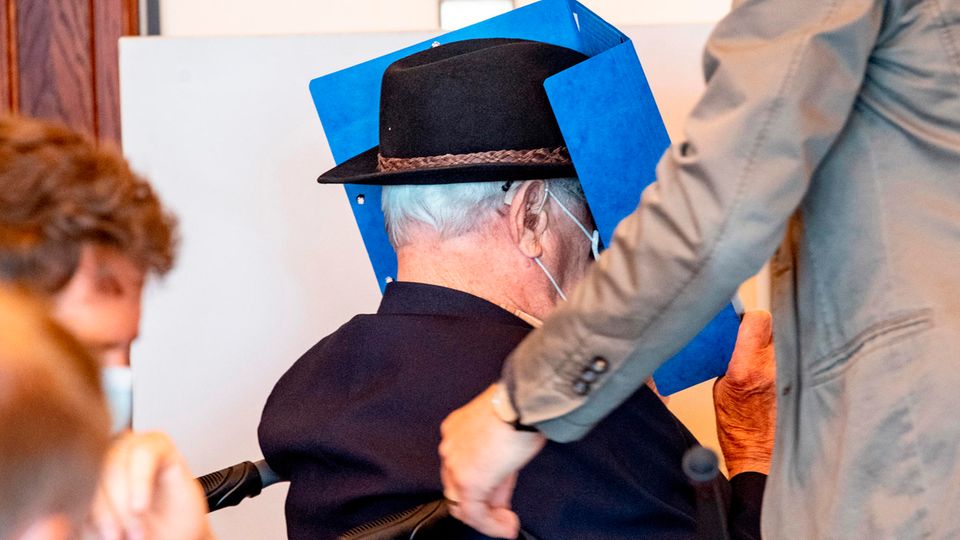The concentration camp survivor Risa Silbert cannot forget the inhumanity in the Stutthof camp. In the trial of a former concentration camp secretary, she reports on this. The gruesome details are hard to bear.
A concentration camp survivor reported on the inhumanity in the Stutthof camp near Gdansk in the trial against a former concentration camp secretary before the Itzehoe district court. “Stutthof was hell,” said 93-year-old Risa Silbert, who was connected via video from her home in Australia.
There was cannibalism in the camp because the people were hungry, the witness and joint plaintiff said after the words of an interpreter. “It was every day.” When asked, the survivor confirmed her description.
In 1944, when she was 15, she and her older sister hid under corpses from the SS guards, the witness explained. Because of a typhoid epidemic, dead people were lying around everywhere. The Russian prisoners of war who had to collect the bodies would have seen her and her sister and left them alone.
Irmgard F. worked in Stutthof in the headquarters of the concentration camp
The 97-year-old Irmgard F. was accused in the trial before the Itzehoe District Court. She is said to have worked as a civilian employee in the concentration camp commandant’s office from June 1943 to April 1945. The public prosecutor’s office accuses her of having aided and abetted the systematic murder of more than 11,000 prisoners through her paperwork.
The accused showed no emotion at the cruel descriptions of the survivors. Risa Silbert reported that she came from a Jewish family, her father and brother were murdered in 1941 by German collaborators in Kaunas. She was brought to Stutthof from Estonia in August 1944.
Every morning the prisoners had to report at 4 or 5 a.m. for roll call. Anyone who did not stand still was whipped by the SS guards. “None of us were addressed by name. We were just called ‘bastards’,” said Silbert.
Stutthof prisoners had to march to Danzig
In mid-April 1945 the prisoners had to march to Danzig, from where they were taken across the Baltic Sea to Holstein in barges. In Neustadt they were freed by British soldiers on May 3rd. She still has scars from the beatings in the camp.
Silbert asked the accused to plead guilty. “If she worked as the commander’s secretary, then she knew exactly what happened.”

Afterwards, one of the co-plaintiffs’ lawyers read a statement in which he called on the accused to break her silence on behalf of the other co-plaintiffs. She worked for the concentration camp commander Paul Werner Hoppe and is a contemporary witness. From this comes a responsibility. Everyone in the courtroom agreed that Stutthof’s crimes should not be repeated. “Silence doesn’t do justice to the cause,” he explained.
Source: Stern
David William is a talented author who has made a name for himself in the world of writing. He is a professional author who writes on a wide range of topics, from general interest to opinion news. David is currently working as a writer at 24 hours worlds where he brings his unique perspective and in-depth research to his articles, making them both informative and engaging.




